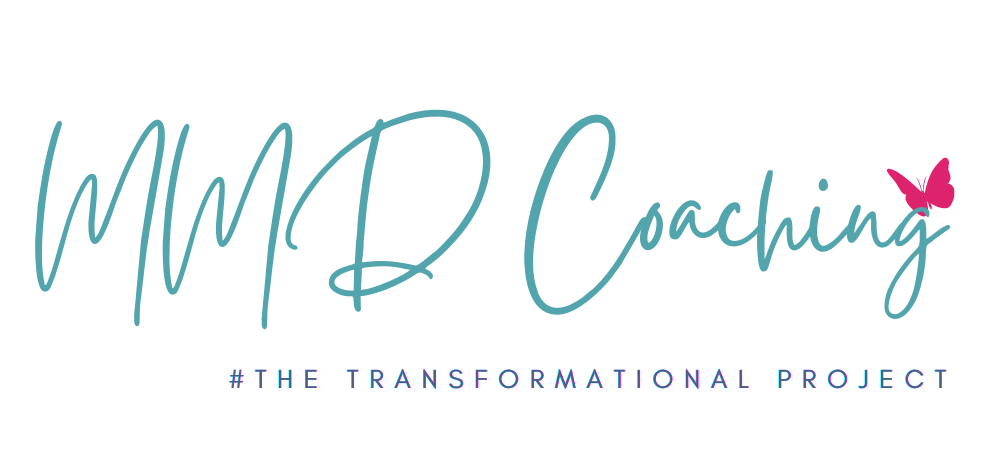Welcome to MMD Coaching!
Welcome to MMD Coaching!
Welcome to MMD Coaching! Welcome to MMD Coaching!
Welcome to MMD Coaching!
Download your free self-care journal!
I’m Maria-Myrsini Dermpoki, self-love and mindset coach supporting individuals in cultivating self-compassion, nurturing personal development, and achieving holistic well-being.
Denis Waitley
Personal development is the belief that you are worth the effort, time, and energy needed to develop yourself.
Frequently Asked Questions
-
Sure! Life coaching is a process designed to help individuals identify and achieve their personal and professional goals. It's like having a supportive partner who guides you through various aspects of your life and empowers you to make positive changes. A life coach helps you gain clarity, set meaningful goals, develop action plans, and provides accountability to keep you on track.
Life coaching can benefit a wide range of people. Whether you're feeling stuck, uncertain about your direction, or simply looking to enhance your life, a life coach can be valuable. They can assist with career transitions, relationship issues, personal growth, work-life balance, self-confidence, and many other areas.
Life coaching is particularly helpful for those who are motivated and committed to making positive changes in their lives. It's for people who want to gain self-awareness, explore their values and beliefs, overcome obstacles, and unlock their full potential. A life coach acts as a sounding board, offering support, encouragement, and guidance throughout the process.
One of the great things about life coaching is that it's a collaborative partnership. It's not about someone telling you what to do, but rather working together to explore possibilities, identify goals, and create strategies for success. A life coach helps you tap into your inner resources, discover your strengths, and overcome limiting beliefs or self-doubt.
The benefits of life coaching are numerous. It can help you gain clarity and focus, increase self-confidence, improve decision-making skills, and enhance your overall well-being. By setting specific goals and working towards them with the support of a coach, you can experience personal growth, increased motivation, and a greater sense of fulfillment in various areas of your life.
It's important to note that life coaching is not therapy or counseling. While therapy focuses on healing emotional wounds and addressing mental health issues, life coaching concentrates on personal development and goal achievement. However, coaching and therapy can complement each other, and many people find it beneficial to engage in both simultaneously or at different stages in their lives.
Ultimately, life coaching is about empowering individuals to live their best lives, providing them with the tools and support they need to overcome challenges, make meaningful changes, and create a fulfilling and purposeful future.
-
Life coaching, counseling, and therapy are all distinct approaches to supporting individuals in various aspects of their lives. While there may be some overlap, each has its unique focus and purpose. Here's a breakdown of their differences:
Life Coaching:
Life coaching is a collaborative and future-oriented approach that aims to help individuals identify and achieve personal and professional goals. Life coaches typically work with clients who are seeking personal growth, improved performance, or a sense of fulfillment. Coaches often utilize a variety of techniques, such as active listening, powerful questioning, and goal setting, to help clients gain clarity, develop action plans, and overcome obstacles. Life coaching typically focuses on the present and future, rather than delving into past experiences or emotional healing.
Counseling:
Counseling, also known as therapy, involves a professional relationship between a counselor and a client, with the goal of addressing specific emotional, psychological, or behavioral concerns. Counselors are trained to explore and understand the client's thoughts, feelings, and behaviors, often in the context of past experiences or traumas. They may use different therapeutic approaches, such as cognitive-behavioral therapy (CBT), psychoanalysis, or humanistic therapy, to help individuals gain insight, manage challenges, and promote mental well-being. Counseling tends to focus on resolving problems, improving coping skills, and facilitating personal growth.
Therapy:
The term "therapy" is often used interchangeably with counseling, but it can encompass a broader range of approaches and goals. Therapy refers to a professional intervention aimed at addressing mental health concerns, emotional difficulties, and psychological disorders. Therapists are trained in various modalities and techniques to assess, diagnose, and treat conditions such as depression, anxiety, trauma, or addiction. The focus of therapy is typically on understanding the underlying causes of distress, promoting healing, and facilitating positive change. Therapy may involve short-term interventions or longer-term treatment, depending on the nature and severity of the issues being addressed.
It's important to note that the qualifications, credentials, and regulations governing life coaches, counselors, and therapists may vary depending on the jurisdiction and professional organizations. If you're seeking support, it's crucial to research and choose a qualified professional who aligns with your specific needs and goals.
-
The International Coaching Federation (ICF) is a non-profit organization that is primarily focused on advancing the coaching profession on a global scale. It is the leading global organization dedicated to setting high standards for professional coaches and promoting the coaching industry's credibility and effectiveness.
ICF provides a framework of professional standards, ethics, and competencies for coaches, offering certifications that validate a coach's skill and expertise. The organization also acts as a resource for both professional coaches and individuals seeking coaching services.
Some key aspects of ICF include:
1. Credentialing: ICF offers three levels of professional coaching credentials: Associate Certified Coach (ACC), Professional Certified Coach (PCC), and Master Certified Coach (MCC). These credentials are internationally recognized and demonstrate a coach's commitment to excellence and professionalism.
2. Code of Ethics: ICF has established a Code of Ethics that outlines the ethical guidelines and professional conduct expected from its members. Coaches who are part of ICF are expected to adhere to these standards.
3. Continuing Education: ICF promotes lifelong learning and professional development for coaches. It offers various educational programs, training resources, and opportunities for coaches to enhance their skills and stay up-to-date with the latest coaching practices.
4. Global Reach: ICF has a worldwide presence, with chapters and members in numerous countries. It fosters a global community of coaches, providing networking opportunities, conferences, and events to connect coaches from different regions.
The International Coaching Federation plays a crucial role in advancing the coaching profession, ensuring that coaches follow ethical standards, and promoting the development and growth of the industry as a whole.
-
Neuro-Linguistic Programming, or NLP, is a psychological approach that explores the connection between neurological processes (neuro-), language (linguistic), and patterns of behavior and thought (programming). It was developed in the 1970s by Richard Bandler and John Grinder.
NLP proposes that by understanding and modifying the way we think, communicate, and perceive the world, we can achieve personal and professional growth. It suggests that individuals can reprogram their thoughts and behaviors to overcome limitations, improve communication skills, and enhance their overall well-being.
Some key principles of NLP include:
1. Modeling Excellence: NLP suggests that by studying and modeling the strategies and behaviors of successful individuals, we can learn and apply their techniques to achieve similar results.
2. Sensory Acuity: NLP emphasizes the importance of being more aware of our own and others' sensory experiences, including visual, auditory, and kinesthetic cues, to gain a deeper understanding of communication patterns.
3. Anchoring: Anchoring is a technique in NLP that associates a specific stimulus (such as a touch or a word) with a particular emotional or mental state, which can be later accessed or triggered intentionally.
4. Reframing: Reframing involves changing the perception or interpretation of a situation by altering the meaning attached to it. It aims to shift the perspective to create a more positive or empowering outlook.
5. Rapport Building: NLP emphasizes establishing rapport and building trust with others through mirroring and matching their non-verbal behavior, tone of voice, and language patterns.
NLP has been applied in various fields, including therapy, coaching, sales, leadership development, and self-improvement. However, it's worth noting that the scientific evidence supporting the effectiveness of NLP techniques is limited, and it has been a subject of criticism and controversy within the psychological community.
It’s only after you step out of your comfort zone that you begin to change, grow, and transform.
Roy T. BennetRalph Waldo Emerson
“What lies behind us, and what lies before us, are tiny matters compared to what lies within us.”
Buddha
“What we are today comes from our thoughts of yesterday, and our present thoughts build our life of tomorrow: Our life is the creation of our mind.”
Blog Posts
Testimonials

It’s only after you step out of your comfort zone that you begin to change, grow, and transform.
— Roy T. Bennet
















